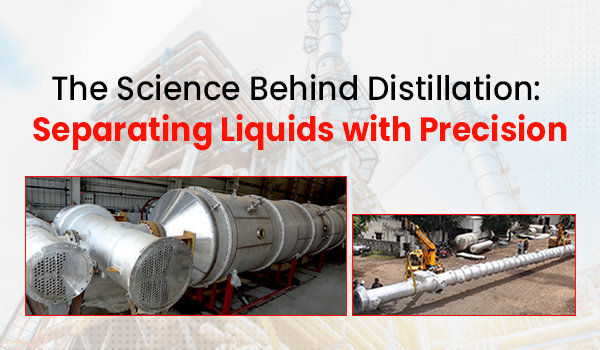
Distillation is a powerful process that has been utilized for centuries to separate and purify liquids. It forms the backbone of various industries, from the production of essential oils and pharmaceuticals to the distillation of alcoholic beverages. At its core, distillation is all about precision and the mastery of science. In this article, we'll take a closer look at the fascinating science behind distillation.
Understanding Distillation
Distillation is based on the principle that different liquids have different boiling points. By heating a mixture of liquids, we can separate them based on their boiling points and collect the vapor to condense it back into a liquid form. This process is all about exploiting the differences in vapor pressures and boiling points.
The Role of Temperature
Temperature control is a critical aspect of distillation. When a mixture is heated, the component with the lowest boiling point will vaporize first. This vapor is then condensed back into a liquid, creating two distinct fractions: the volatile component (with the lower boiling point) and the less volatile component (with the higher boiling point). This separation is the heart of distillation.
Fractional Distillation
In many cases, simple distillation isn't sufficient to achieve the desired level of purity. Fractional distillation takes the process a step further by using a fractionating column. This column contains various trays or packing material that allows for multiple vaporization and condensation cycles within the column. As the vapor rises and falls through the column, it becomes progressively enriched in the lower boiling point component, resulting in a more precise separation.
Practical Applications
Distillation finds applications in various fields:
1. Chemistry: Chemists use distillation to purify chemicals, separate compounds, and study their properties.
2. Pharmaceuticals: The pharmaceutical industry relies on distillation to create pure drugs and chemicals used in medicine.
3. Food and Beverages: Distillation is at the heart of producing alcoholic beverages like whiskey, vodka, and gin, as well as essential oils and flavor extracts.
4. Petrochemicals: The oil and gas industry uses distillation to separate crude oil into its various components like gasoline, diesel, and jet fuel.
Conclusion
Distillation is an elegant and precise method for separating liquids based on their boiling points. Its applications are diverse, making it a cornerstone in various industries. By understanding the science behind distillation, we gain the ability to harness its power for the creation of pure and valuable products.
At Rahul Engineering Global Private Limited, we are dedicated to delivering precision-engineered distillation equipment to meet the needs of various industries. Our commitment to quality and craftsmanship ensures that distillation processes run smoothly and efficiently. For more information on our distillation solutions, please visit our website. www.regpl.com
